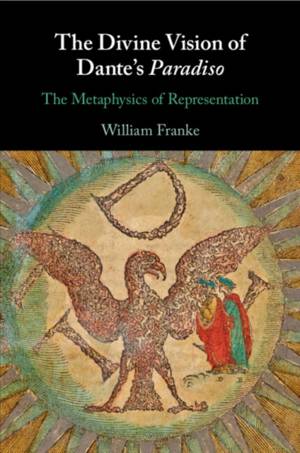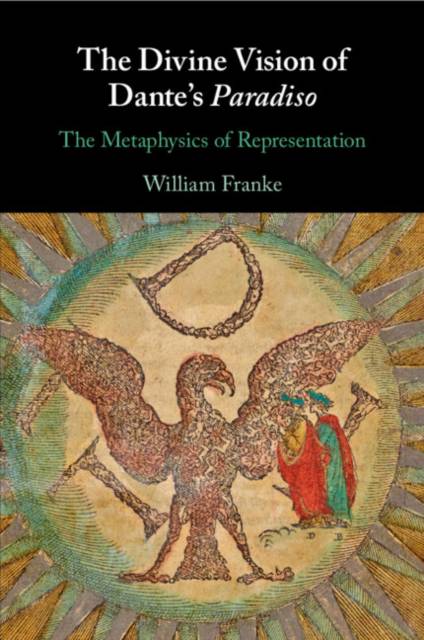
- Afhalen na 1 uur in een winkel met voorraad
- Gratis thuislevering in België vanaf € 30
- Ruim aanbod met 7 miljoen producten
- Afhalen na 1 uur in een winkel met voorraad
- Gratis thuislevering in België vanaf € 30
- Ruim aanbod met 7 miljoen producten
Zoeken
The Divine Vision of Dante's Paradiso
The Metaphysics of Representation
William Franke
Paperback | Engels
€ 43,45
+ 86 punten
Uitvoering
Omschrijving
In Canto XVIII of Paradiso, Dante sees thirty-five letters of Scripture - LOVE JUSTICE, YOU WHO RULE THE EARTH - 'painted' one after the other in the sky. It is an epiphany that encapsulates the Paradiso, staging its ultimate goal - the divine vision. This book offers a fresh, intensive reading of this extraordinary passage at the heart of the third canticle of the Divine Comedy. While adapting in novel ways the methods of the traditional lectura Dantis, William Franke meditates independently on the philosophical, theological, political, ethical, and aesthetic ideas that Dante's text so provocatively projects into a multiplicity of disciplinary contexts. This book demands that we question not only what Dante may have meant by his representations, but also what they mean for us today in the broad horizon of our intellectual traditions and cultural heritage.
Specificaties
Betrokkenen
- Auteur(s):
- Uitgeverij:
Inhoud
- Aantal bladzijden:
- 324
- Taal:
- Engels
Eigenschappen
- Productcode (EAN):
- 9781009016919
- Verschijningsdatum:
- 27/07/2023
- Uitvoering:
- Paperback
- Formaat:
- Trade paperback (VS)
- Afmetingen:
- 152 mm x 229 mm
- Gewicht:
- 435 g

Alleen bij Standaard Boekhandel
+ 86 punten op je klantenkaart van Standaard Boekhandel
Beoordelingen
We publiceren alleen reviews die voldoen aan de voorwaarden voor reviews. Bekijk onze voorwaarden voor reviews.











